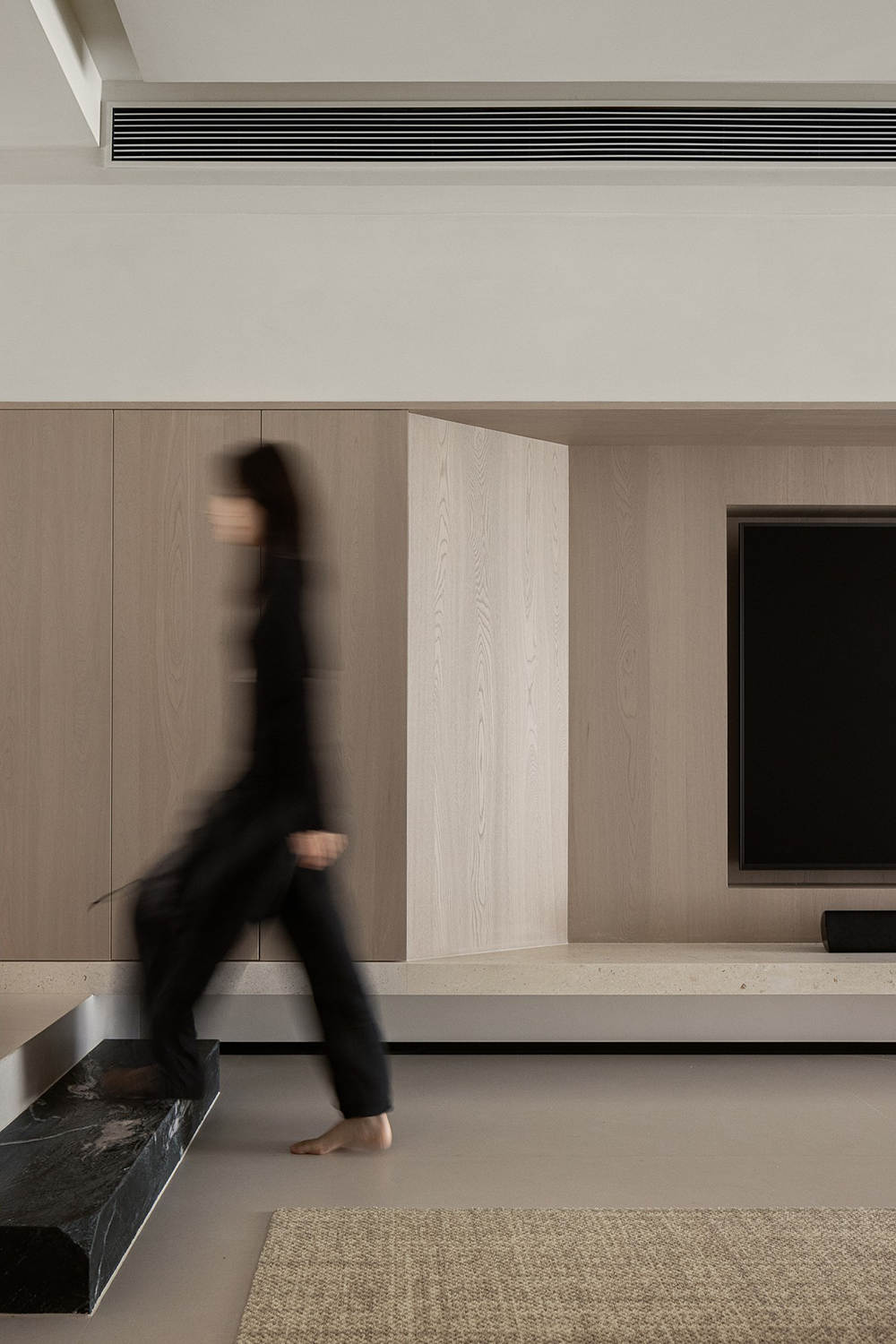Planar House / Studio MK27
2018-07-05 13:40
Architects: Studio mk27 Project: Planar House Author: Marcio Kogan / Co-author: Lair Reis Interiors: Diana Radomysler Design Team: Carlos Costa, Carolina Castroviejo, Laura Guedes, Mariana Simas, Oswaldo Pessano, Pedro Ribeiro, Raquel Reznicek, Renato Périgo, Ricardo Ariza Miyabara, Suzana Glogowski, Tamara Lichtenstein, Thauan Miquelin Location: Porto Feliz, Sao Paulo, Brazil Size: 1000.0 m² Year 2018 Photographer: Fernando Guerra
建筑师:工作室MK 27项目:平面房屋作者:Marcio Kogan/合著者:lair Reis Interiors:Diana Radomysler设计团队:Carlos Costa、卡罗莱纳·卡斯特罗维乔、劳拉·盖德斯、马里亚纳·西马斯、奥斯瓦多·佩萨诺、佩德罗·里贝罗、拉克尔·雷兹尼克、雷纳托·佩里戈、里卡多·阿里扎·米亚巴拉、苏珊娜·格洛戈夫斯基、塔玛拉·利希滕斯坦、塔安·米奎林位置:巴西圣保罗波尔图费利兹:2018年摄影记者:1000.0米
Planar House is a radical exercise in horizontality, aspect commonly explored in the projects of the Mk27 studio. Discreetly inserted in the highest point of the plot and favoring the existing topography, its presence is most strongly felt in the footprint rather than volumetrically. An extensive line in an open landscape.
PlanarHouse是一项在水平上的激进运动,在Mk27工作室的项目中普遍探索。在地块的最高点,并对现有地形有利,其存在在足迹中最强烈的感觉,而非体积上。开阔的景观中的一条宽广的路线。
This type of insertion on the plot demanded care and attention with the design of the rooftop, which is the fifth facade of the building. This was an exercise in composition and selection of equipment to be placed there, such as solar panels and skylights. The green roof mimics the surrounding lawn as well as contributes to the thermal comfort in the house.
这类插入在地块上需要小心和注意的设计屋顶,这是建筑物的第五个正面。这是在组成和选择放置在那里的设备,如太阳能电池板和天窗。绿色屋顶模仿了周围的草坪,也为室内的热舒适性做出了贡献。
Structurally, the slab is a rigid platform that is not supported by beams but directly by the pillars, which are distributed modularly in three axes. The cross-shaped metallic pillars are homage to the elegant proportions of miesian architecture.
在结构上,板是一个刚性平台,它不是由梁支撑,而是由柱子直接支撑,柱子以三轴的方式分布。十字形金属柱是对米西亚建筑中优雅比例的致敬。
Under the roof there are two programmatic boxes, the first one with the service areas, gym, tv and playrooms and the second one with the five en-suite bedrooms. The living rooms are located at the extremities and can be completely opened or closed by sliding glass doors transforming the entire house into a terrace. The interiors are made of low and solid wood furniture and the layout of the spaces leaves enough space for free circulation between the furniture and the panels and allows for an individualized reading of each piece. A translucent multi-colored club-chair hanging from the slab becomes the focus of attention and contrasts with the horizontality of the house.
屋檐下有两个编程式箱,第一个有服务区、健身房、电视和游戏室,第二个有五个套房卧室。起居室位于极端,可以通过滑动玻璃门完全打开或关闭,把整个房子变成一个露台。内部是由低和实木家具和布局的空间,留出足够的空间,自由流通之间的家具和面板,并允许一个个性化的阅读每一件。从板子上悬挂的一张半透明的多色球杆椅成为人们关注的焦点,与房子的水平性形成鲜明对比。
Surrounding the rigid formal distribution, there is a vertical winding wall made of solid bricks arranged in solids and voids. Paradoxically, it defines the different relationships between the internal and external spaces. The wall, which is usually a symbol of division and isolation, in this project, is at times concave and at others convex, embracing the entrance garden and creating transparencies as well as offering protection from the street. Its brick texture contributes to a cozy atmosphere and creates light filters with kinetic effects as the day passes.
在刚性的形式分布周围,有一个立式缠绕墙,由固体和空隙中的实心砖组成。矛盾的是,它定义了内部空间和外部空间之间的不同关系。这堵墙通常是分隔和隔离的象征,在这个项目中,有时是凹的,而另一些则是凸的,包括入口花园,创造透明,以及提供保护远离街道。它的砖结构有助于一个舒适的气氛,并创造出具有动力效应的光过滤器,随着时间的推移。
 举报
举报
别默默的看了,快登录帮我评论一下吧!:)
注册
登录
更多评论
相关文章
-

描边风设计中,最容易犯的8种问题分析
2018年走过了四分之一,LOGO设计趋势也清晰了LOGO设计
-

描边风设计中,最容易犯的8种问题分析
2018年走过了四分之一,LOGO设计趋势也清晰了LOGO设计
-

描边风设计中,最容易犯的8种问题分析
2018年走过了四分之一,LOGO设计趋势也清晰了LOGO设计


































































